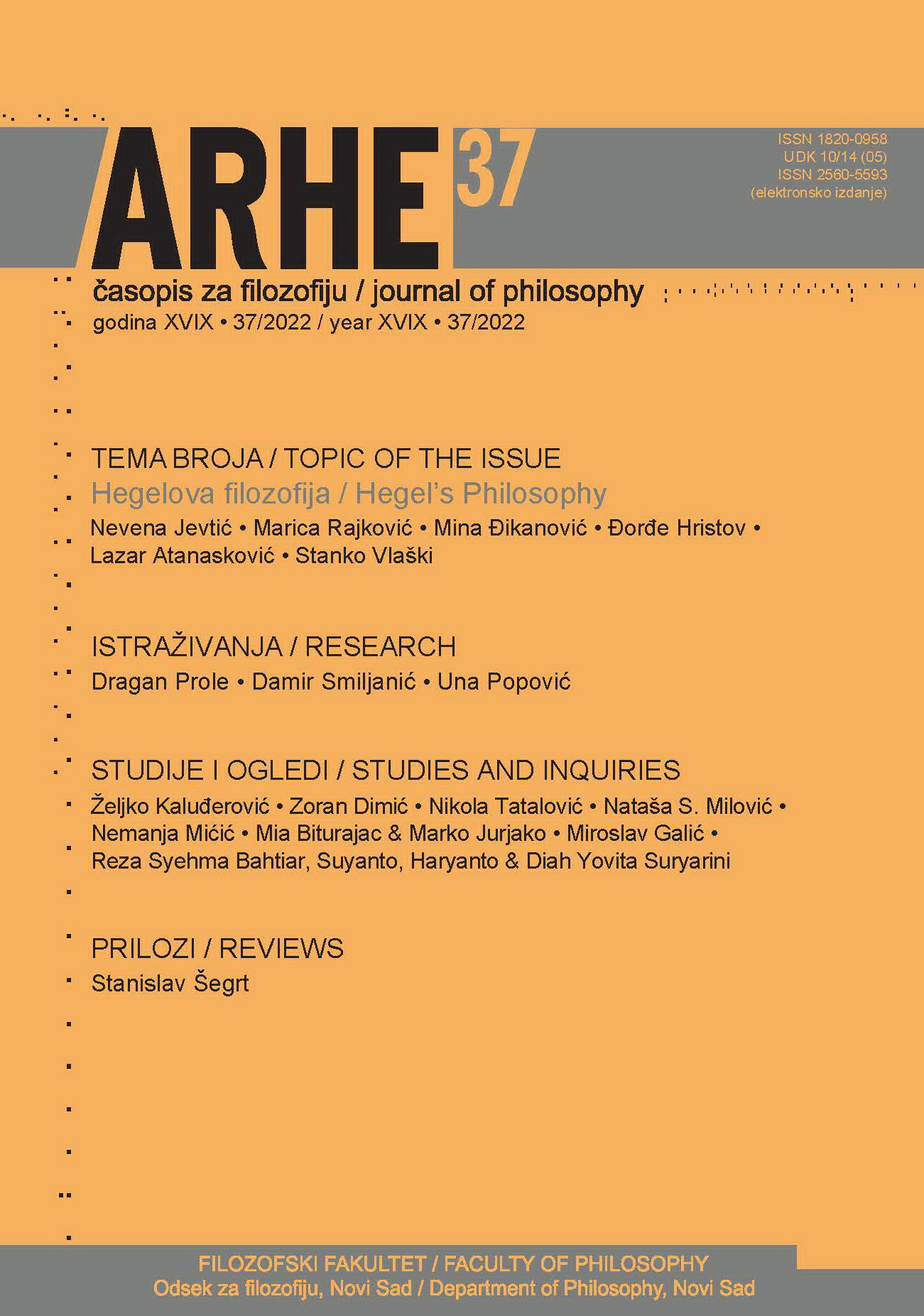HEGEL'S UNDERSTANDING OF PSYCHOLOGY
Main Article Content
Abstract
The aim of this paper is to present the key characteristics and specifics of Hegel's understanding of psychology. The basic topic and starting point of this entire research is Hegel's concept according to which psychology should not be "a science of the soul", as it has been constituted throughout its history, but "a science of the spirit". This starting point also means a complete reversal of the meaning and goals of psychology, which instead of the emotional side should deal with spiritual phenomena and the spiritual structure of consciousness. In that way, psychological processes and the methodology of their examination get a completely different basis and structure, which could've completely changed the course of the historical development of psychology as an independent discipline. The idea that psychology is a science based on wrong foundations (and that its authentic subject should be different) should be understood not so much as an irreparable mistake, but as a possibility that both philosophy and psychology still have not lost
Article Details

This work is licensed under a Creative Commons Attribution-NoDerivatives 4.0 International License.
References
Briefe I, (Briefe I–III) Briefe von und an Hegel, editedby Johannes Hoffmeister, Meiner, Hamburg, 1952–1954.
Hegel, G. W. F., Enciklopedija filozofijskih znanosti, Veselin Masleša – Svjetlost, Sarajevo, 1987.
Hegel, G. V. F., Fenomenologija duha, BIGZ, Beograd, 1986.
Hegel’s Philosophical Psychology, ed. by Herrmann-Sinai, S., Ziglioli, L., Routledge, New York, 2016.
Liddell, H. G., Scott, R., A Greek-English Lexicon, Clarendon Press, Oxford, 1940.
Perović, M.A., Filozofija morala, Cenzura, Novi Sad, 2013.
Rajković, M., Problem estetike u filozofiji nemačkog idealizma, Filozofski fakultet, Novi Sad, 2021.
Rose, G., Hegel contra sociology, Athlone Press, London and Atlantic Highlands, 1995.
Winfield, R. D., Hegel and Mind: Rethinking Philosophical Psychology, Palgrave Macmillan, 2014.
Zantwijk, T., „Weg des Bildungsbegriffs von Fichte zu Hegel“, Jürgen Stolzenberg und Lars-Thade Ulrichs, Bildung als Kunst, u: Fichte, Schiller, Humboldt, Nietzsche, Walter de Gruyter GmbH & Co. KG, Berlin/New York, 2010.
